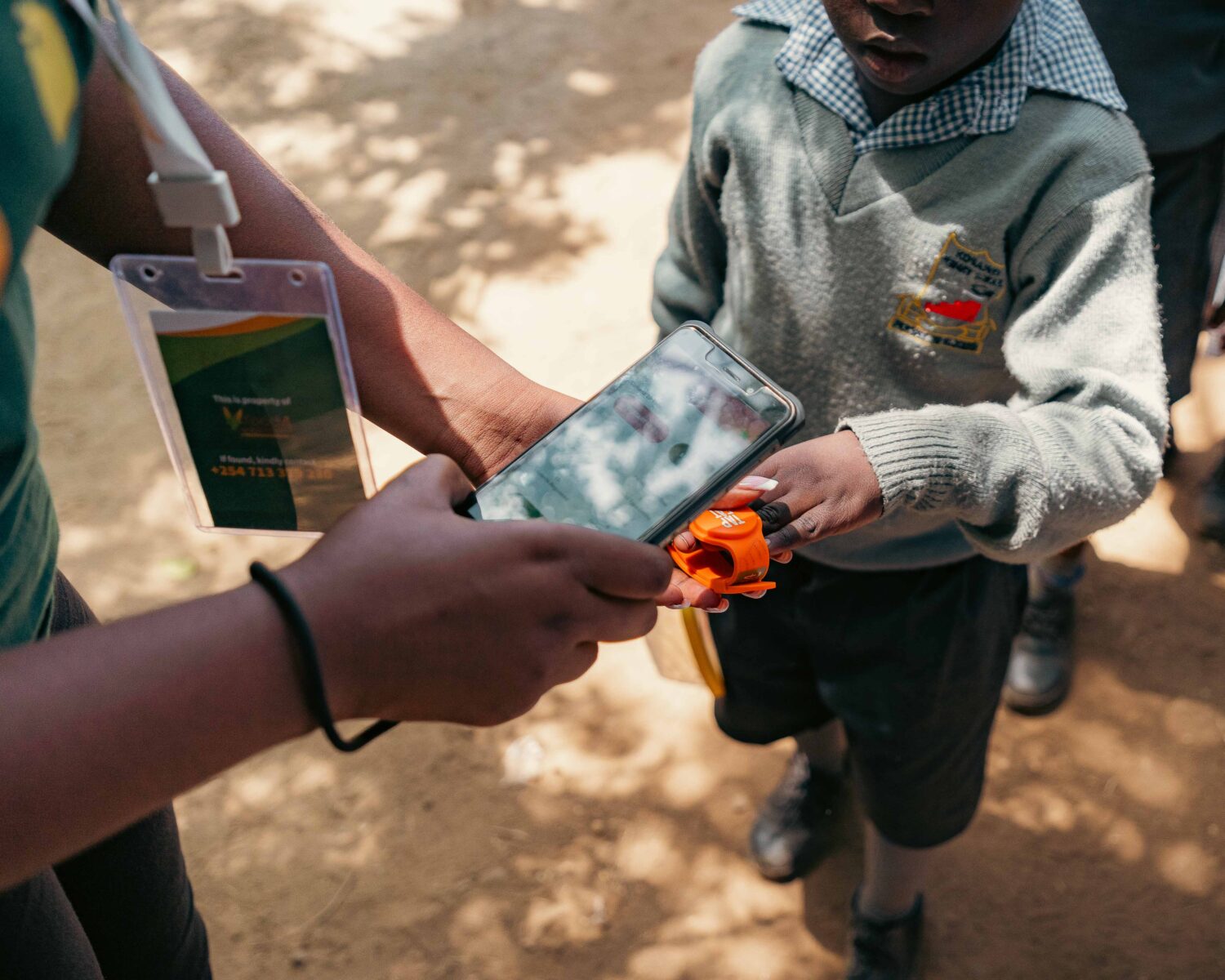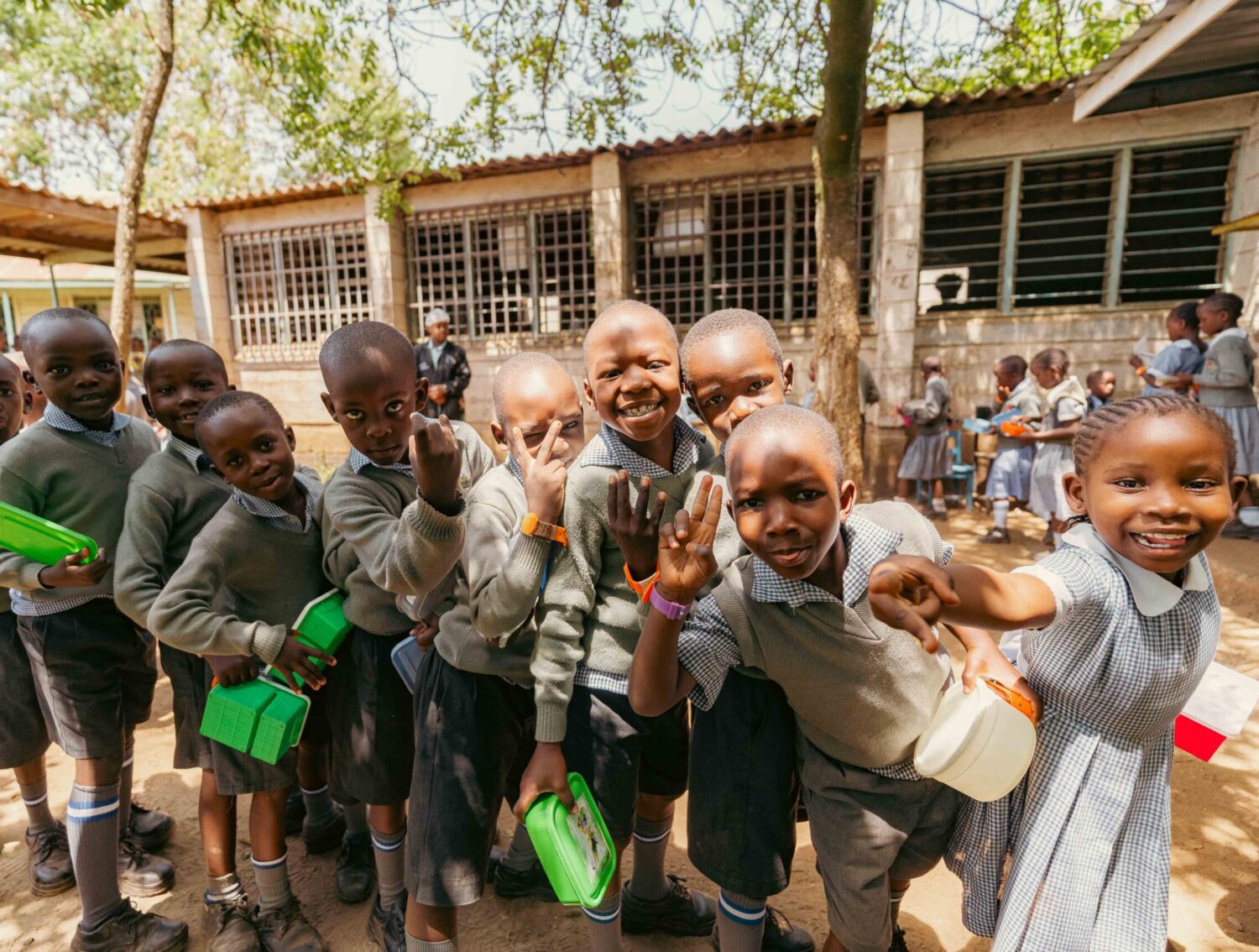At the Rainwater Charitable Foundation, our mission to serve children and families goes well beyond North Texas. In East Africa, we proudly support nonprofits and schools that are helping students reach their full potential by investing in strong K-12 education systems and supporting families on their educational journeys. One of these outstanding non-profit partners is Food4Education. We’re proud to highlight Food4Education’s transformative impact and ongoing expansion across Africa.
A Blueprint for School-Based Nutrition
Hunger remains one of the most persistent barriers to learning across Africa. In Kenya alone, an estimated 11% of the country’s 24.6 million children[1] under 18 experience food insecurity, which significantly impairs their physical and cognitive development, health outcomes, and academic success. The long-term consequences include reduced lifetime earnings and diminished opportunity.[2]
One proven solution is the provision of nutritious meals in school. According to the World Food Program, for every $1 invested in effective school feeding programs, there is a $9 return in improved health, education, and productivity, especially for girls and for children from the most economically disadvantaged households[3].
While Kenya’s government currently funds meals for children in arid and semi-arid regions, and private school students typically have consistent nutrition, a nationwide solution for children in public elementary schools is still emerging. This is where Food4Education is leading the way.
From Small Start to Systemwide Impact

Founded in 2012 by celebrated Kenyan nutritionist and social entrepreneur Wawira Njiru, Food4Education began by feeding 25 students a day. Today, it is the largest locally led school feeding program in Africa, serving over 450,000 children daily in more than 1,300 schools.
F4E’s model is built on smart experimentation followed by strategic scaling. The organization operates centralized kitchens across the country, maintains bulk purchasing agreements with local farmers, and uses a hub-and-spoke food delivery system to ensure reliability and efficiency. Their use of digital wristbands–which allow parents to contribute to meal costs and enable real-time tracking of meals served—is a hallmark of their tech-forward approach.
Meals cost an average of just $0.13, with parents contributing about $0.10[4]. These costs are kept low through local sourcing and operational efficiencies. The results are tangible: stronger attendance, higher academic performance, and better nutrition outcomes.
Community at the Center

Food4Education’s growth has not come at the expense of community connection. The organization hires local staff, operates multilingual call centers, and works closely with schools to incorporate feedback loops. Their partnerships with Kenyan farmers not only support local economies but also ensure freshness and sustainability.
In 2024, F4E launched a new mega-kitchen in Kisumu County, expanded to Kajiado County, and surpassed 100 million meals served. The organization soon gained global recognition, becoming a grantee of The Audacious Project, accelerating the path to its ambitious next goal—nourishing 1 million children daily by 2027 and expanding to reach 2 million more across Africa by 2030.
A Shared Vision for Africa’s Children
Our partnership with Food4Education is part of the Rainwater Charitable Foundation’s broader strategy to support K–12 education and large-scale feeding programs across Africa. Together, we believe in solutions that are scalable, sustainable, and deeply rooted in the communities they serve.
To learn more about Food4Education, visit food4education.org.
[1] https://data.unicef.org/how-many/how-many-children-under-18-are-there-in-kenya/
[2] https://www.unicef.org/kenya/nutrition
[3] https://docs.wfp.org/api/documents/WFP-0000123923/download/
[4] https://food4education.org/wp-content/uploads/2025/02/Food4Education-Q2-2025-Report.pdf

